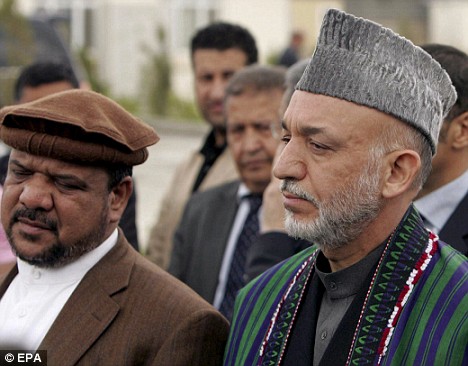
Afghan Officials and Taliban are two faces of the same coin!
Reading time: (Number of words: )
Afghanistan held presidential elections on August 20 with the hope and expectation to end Afghan warlordisim. The warlords, who were largely responsible for assisting the U.S.’s ouster of the Taliban in 2001 are now deeply entrenched in Afghan society. They have positions in government, in the police, in the army and in business. Though they have largely relinquished their tanks and heavy artillery, most have been able to maintain their core militias in the form of private security companies, political parties or loose business networks.
Allegations of land grabs, rape, murder and kidnapping are rife. However, it turned to be a dramatic and full of fraud election that has totally damaged Karzi’s credibility because of the fact that the power of government is still in the hands of corrupt and warlord-backed government officials. This election marks the return of the warlords who had dominated the Afghan government in the early post-2001 years.
Karzai again cut deals with many warlords to ensure his re-election. For example, he recruited the notorious Northern Alliance warlord Muhammad Fahim as one of his running mates in an attempt to split Abdullah’s base. Fahim has been accused of countless human rights violations. In addition, he obtained support from the famous human right violator Dostum in his re-election.
This has led to the empowerment of the Taliban who are composed of several layers: first, a hard-core group of former Taliban commanders (including Mullah Omar) who operate out of sanctuaries across the border in Pakistan and who maintain ties with Pakistan’s ISI intelligence agency; second, bands linked to al-Qaeda whose ranks have recently swelled with Arab, Chechen and Uzbek fighters operating in the craggy, northeastern ranges of Afghanistan; and, a third group, probably the largest, made up of local tribesmen who have allied themselves loosely with the Taliban as a result of President Hamid Karzai’s often corrupt provincial officials pitting one tribe against another.
For Example, Mullah Salam, a tribal elder from Helmand province, scene of heavy fighting between Taliban and NATO forces, told Online Times why he switched to the Taliban:
"Karzai’s people made promises to me, and I in turn made them to my tribe, but these were never honored." This in fact brought the idea in the Pashtun strongholds of Afghanistan, that it might be a good idea for a tribe to start siding with the Taliban, even though members of the tribe may not agree with their harsh medievalism. A critical mass is gathering, experts say. Elders who belong to once neutral tribes in Kandahar province are now telling their youths to take up arms against the foreign invaders, as their fathers did back in the 1980s against the Red Army.
In Tahkt-e-Pul, on the edges of Kandahar city, an influential mullah recently refused to preside over the funeral of a dead Afghan government soldier, a local boy. Meanwhile a Taliban, who died fighting the Americans or the British, was honored as a brave martyr. It is a disturbing change among Afghans who in 2001, after the dark years of the Taliban, welcomed foreigners bringing aid and offering progress.
The Taliban is surging into the vacuum created by Karzai’s government, which is based on patronage rather than competence, coupled with the international community’s often bungled and chaotic distribution of aid.
Afghan citizens are now experiencing intolerable incidents of human rights violations such as killing, bombing, kidnapping, and rape because both the warlord government and Taliban are in fact faces of the same coin

Poems for the Hazara
The Anthology of 125 Internationally Recognized Poets From 68 Countries Dedicated to the Hazara
Order Now









